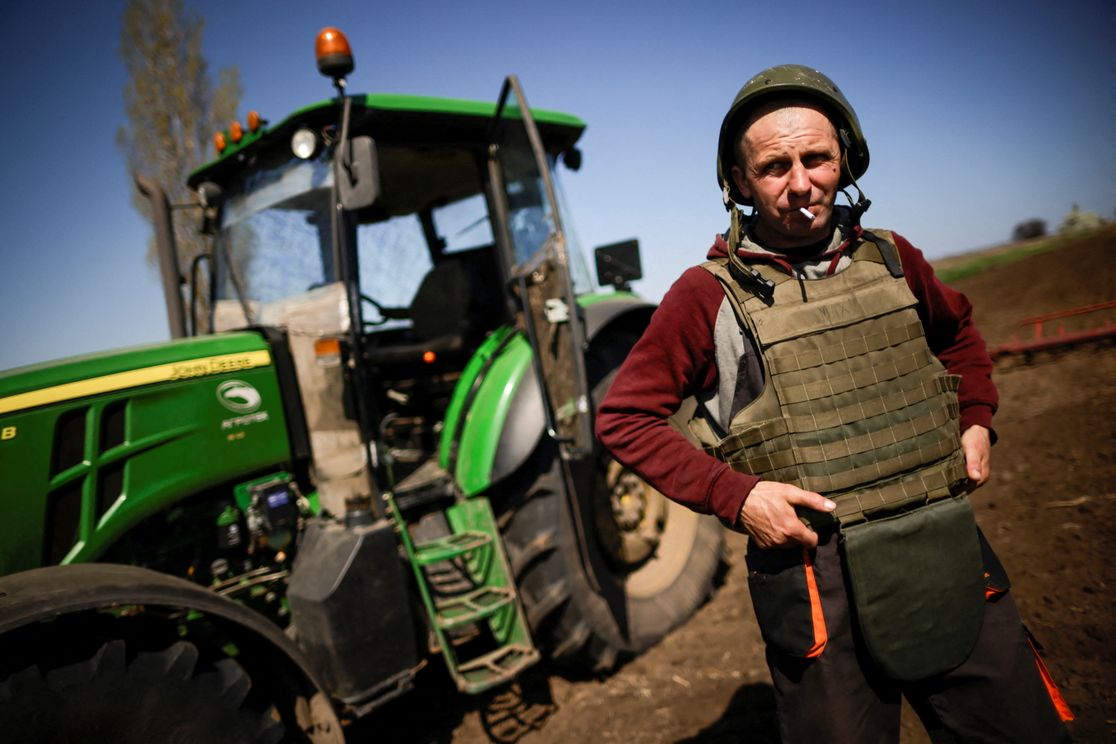| |
| |
| |
| Presented By PhRMA |
| |
| Axios AM |
| By Mike Allen · Apr 27, 2022 |
| Happy Wednesday. Smart Brevity™ count: 1,120 words ... 4 mins. Edited by Noah Bressner. |
| |
| |
| 1 big thing: Beijing braces for lockdown |
 |
|
| Illustration: Sarah Grillo/Axios |
| |
| Beijing is bracing for a potential lockdown in the face of a new COVID outbreak: - Residents are stocking up on supplies, and authorities have ordered 20 million people to take three mandatory tests this week, Axios World editor Dave Lawler writes.
Why it matters: President Xi Jinping's zero-COVID strategy is leaving the world's most populous country indefinitely on the edge of lockdown — with huge consequences for the global economy and supply chain. Between the lines: Xi is so personally tied to the zero-COVID approach — which he publicly defended last week — that some experts think he simply can't abandon it even amid mounting collateral damage. What's happening: Shanghai's brutal, monthlong lockdown has produced severe food shortages and heartbreaking scenes of parents being separated from their COVID-positive children. - Authorities in China's financial capital are erecting fences to pen residents in their buildings.
👀 What we're watching: Beijing has only reported around two dozen new cases on each of the past three days. That's a rounding error in any major U.S. city. But zero-COVID makes them a bona fide emergency. - The effectiveness of zero-COVID in China, in contrast to rampant outbreaks in the West, has been a crucial narrative for the Communist Party and Xi.
- But more contagious variants mean outbreaks are now being detected in cities all over the country, all at once. More than 70 cities have faced some form of lockdown since mid-March.
Between the lines: China's vaccines are less effective than Western mRNA vaccines. Plus zero-COVID has limited exposure to the virus, so few Chinese residents have natural immunity. - That makes uncontrolled outbreaks all the more likely.
The bottom line: The IMF slashed growth projections for China. |
    |
| |
| |
| 2. 🏛️ Spoilers abound for 1/6 committee's big show |
 |
|
| Illustration: Aïda Amer/Axios |
| |
| The House Jan. 6 committee's effort to build suspense for made-for-TV summer hearings is being undercut by a deluge of media leaks of juicy documents and testimony, Alayna Treene writes in Axios Sneak Peek. - Why it matters: The attack on the Capitol is a whodunit where we already know a lot about who done it. So the committee is trying to build drama and mystery for several weeks of June hearings.
What's happening: In a new gusher from the committee, CNN this week obtained 2,319 text messages that former White House chief of staff Mark Meadows sent and received between Election Day and President Biden's inauguration. Meadows provided the trove to the committee in December. - Leaked White House call logs given to the House showed a 7+-hour gap in presidential records. Leaked texts from Ginni Thomas, wife of Justice Clarence Thomas, showed her pushing Meadows to overturn the 2020 election.
What we're hearing: Committee members and their staff fear the leaks will breed complacency in a country distracted by inflation, Ukraine and COVID, sources familiar with the talks tell Axios. - Democrats on the Hill are getting flashbacks to the Mueller investigation. People anticipated a bombshell. But it wound up being called "The Blockbuster That Wasn't."
The committee has conducted nearly 900 depositions and interviews, with more scheduled, and received over 102,000 documents. - Ty Cobb, a former Trump White House lawyer who worked on the Mueller investigation, told Axios: "I don't think I've seen anything with leaks at this level."
Share this story. |
    |
| |
| |
| 3. ⚡ Russia cuts off gas |
| Vladimir Putin speaks to UN Secretary-General António Guterres at the Kremlin yesterday. Photo: Vladimir Astapkovich/Sputnik/Kremlin Pool via AP Russia opened a new war front today by shutting off gas to Poland and Bulgaria — two European Union nations staunchly backing Ukraine. - Why it matters: This is a dramatic escalation in a conflict that's becoming a wider battle with the West, AP reports.
European gas prices shot up on the news. The EU Commission president called the move "blackmail." - State-controlled Gazprom said it cut gas deliveries because the countries refused to pay in rubles, as Vladimir Putin demanded.
|
    |
| |
| |
| A message from PhRMA |
| Voters want Congress to address health insurance |
| |
 |
| |
| Many Americans reject so-called government "negotiation" once they learn it could sacrifice access, choice and innovation. The story: Respondents find health care coverage costs unreasonable and a top priority health care issue for policymakers to address today. Read more in the new survey. |
| |
| |
| 4. 📷 1,000 words |
| Photo: Ueslei Marcelino/Reuters Yuri, a Ukrainian farmer, wears body armor and a helmet as he works on topsoil in a field in the southeastern Zaporizhzhia region yesterday. |
    |
| |
| |
| 5. 😷 58% of Americans caught COVID |
 Data: CDC, Clarke, et al., 2022, "Seroprevalence of Infection-Induced SARS-CoV-2 Antibodies." Chart: Kavya Beheraj/Axios Blood tests show a majority of Americans (roughly 190 million people) — including 3 in 4 children — have been infected with COVID, according to CDC data released yesterday. - The overall U.S. seroprevalence, or prevalence of a disease in a population, for COVID went from 33.5% to 57.7% from December 2021 to February 2022, during the Omicron surge.
The CDC cautions that testing positive for antibodies "should not be interpreted as protection from future infection. Vaccination remains the safest strategy." |
    |
| |
| |
| 6. Gamer extremism rises |
 |
|
| Illustration: Sarah Grillo/Axios |
| |
| Far-right extremists are a growing presence in gaming, Axios tech and gaming editor Peter Allen Clark writes. - Hidden metrics and lackluster content moderation are obstacles to assessing and fighting the problem.
Why it matters: Gaming has grown into one of the largest entertainment industries in the world, leading to massive opportunities for recruitment and organizing by extremist groups. State of play: Extremism in games is "a growing threat," Alex Newhouse, the deputy director at the Center on Terrorism, Extremism, and Counterterrorism — based in Monterey, California — told a Games Developers Conference talk last month. - "Games are becoming increasingly social," Newhouse said. "[T]hose social hooks provide the structures and the infrastructure for extremists to organize, mobilize and spread their hateful and extreme ideologies."
- A December report from the Extremism and Gaming Research Network (EGRN) found that innovative efforts to prevent and counter violent extremism in gaming spaces are "nearly undetectable."
What's happening: In games from military shooters like Call of Duty to open creative environments like Roblox, extremist groups spread abusive messages and foster relationships. - Remy Malan, Roblox VP of Trust & Safety Operations, told Axios: "We abhor extremist ideologies and have zero tolerance for extremist content of any kind."
Sign up for Axios Gaming ... Share this story. |
    |
| |
| |
| 7. 📚 First look: Loving political combat |
 |
|
| Cover photo: Rob Strong |
| |
| Lis Smith — one of the most experienced and irreverent Democratic strategists in the land — will be out July 19 with a raw memoir that follows her from college internships to her star turns as adviser to Pete Buttigieg, Eliot Spitzer, Andrew Cuomo and Terry McAuliffe. - The title, "Any Given Tuesday," puts an Election Day twist on the "Any Given Sunday" truism about the NFL.
The book is animated by Smith's love for the hand-to-hand combat of politics, and she "owns the controversial choices that landed her in the tabloids," says Harper, the publisher. - Smith started kicking around a book at the beginning of COVID, when Buttigieg dropped out of the presidential race.
- She then took 18 months to write about her 16 years of campaigns.
I'm told the book relishes the highs with "Mayor Pete," but doesn't hold back on the lows with Spitzer and Cuomo. |
    |
| |
| |
| 8. 🥊 Parting shot |
| |
    |
| |
| |
| A message from PhRMA |
| Insured Americans face barriers to care |
| |
 |
| |
| Nearly half of insured Americans who take prescription medicines encounter barriers that delay or limit their access to medicines. Learn more about the abusive insurance practices that can stand between patients and the care they need in PhRMA's new report. |
| |
| 📬 Invite your friends to sign up here to get their daily essentials — Axios AM, PM and Finish Line. |
 | It's called Smart Brevity®. Over 200 orgs use it — in a tool called Axios HQ — to drive productivity with clearer workplace communications. | | |













No comments:
Post a Comment